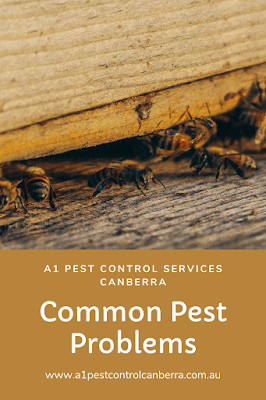TERMITE CONTROL Options in Australia
Who discover indications of termite action inside a structure have a few alternatives for proficient insurance from proceeded with termite invasion and lumber harm in the structure.
Beginning Inspection and Report to AS:3660 - an intensive examination of structures and encompasses - itemized composed report to Australian Standard 3660 re regions investigated - proof found of termite action - high-hazard termite section regions distant to review - termite control choices and impediments.
Compound Soil Treatment around the border and sub-floor of a structure - to kill termites endeavoring to acquire section into the structure - Termidor or Premise termiticides are suggested.
Termite Baiting- establishment - checking of termite trap stations - Nemesis - Exterra - Sentricon termite snares - this strategy depends vigorously on the termites "finding" and devouring adequate lure - suggested in some restricted conditions, especially in regions where live termite action is available.
Building Modification and Maintenance - termite hazard decrease measures - may incorporate improving subfloor ventilation - expulsion of wood in touch with the dirt - further developing examination access regions.
Ensuing Inspections to AS:3660 - fundamental - essentially at 3 to a half year spans where indications of termite movement has been recently found nearby powerless structures or wood structures.
The five families that include the most common pest species are:
- Mastotermitidae (1 pest species - Giant Termite, Mastrotermes darwinensis)
- Kalotermitidae (several pest species of 'dry-wood termites', including the introduced Cryptotermes brevis)
- Termopsidae (1 pest species - Dampwood termite, Porotermes adamsoni)
- Rhinotermitidae (7 pest species, including Coptotermes acinaciformes)
- Termitidae (5 pest species, including Nasutitermes walkeri)



Comments
Post a Comment